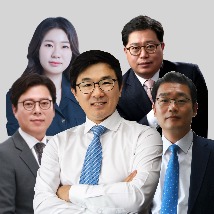NPR 팟캐스트 영어회화 Day 2
NPR
CONSIDER THIS FROM NPR
De-influencers Ring the Alarm on the Environmental Impacts of Overconsumption
Their goal is to get you to buy.
*relatable 공감대를 형성하는
They do it kind of more in the guise of being your friend or being relatable.
It is a lure that is hard to escape.
More garbage that's going to be out of style in, like, a year.
I am here to deinfluence you.
*hyperbolic 과장된, 과장법을 쓴
hyperbolic language around products that get us tempted to buy them.
It was sort of a refreshing take to see this thing didn't change my life.
This thing didn't work the way it was supposed to.
*live up to something(somebody) ~에 부응하다
*hype (대대적이고 과장된) 광고[선전]
It didn't live up to the hype.
This is about using your influence in the right way.
*capitalize on/upon something ~을 활용하다[기회로 삼다] (=take advantage of sth)
How they can capitalize on it.
I don't think that that should have been the extent of deinfluencing.
*commodity 상품, 물품; 원자재
I think social media turns everything into a commodity.
She spent years speaking to issues of sustainability in the context of fast fashion.
I do find the consumer goods topic is the best gateway to being a more active citizen in general.
In the last few years, a new trend has emerged on social media: De-influencers.
Instead of selling, de-influencers encourage their followers to stop buying things they don't actually need. De-influencers are also using this trend as an opportunity to raise awareness about the negative impact of overconsumption on the environment.
<NPR 팟캐스트 원문 기사 바로 가기>
De-influencers Ring the Alarm on the Environmental Impacts of Overconsumption
De-influencers Ring the Alarm on the Environmental Impacts of Overconsumption : Consider This from NPR
In the last few years, a new trend has emerged on social media: de-influencing.Instead of selling, de-influencers encourage their followers to stop buying things they don't need. De-influencers are also using this trend as an opportunity to raise awareness
www.npr.org






